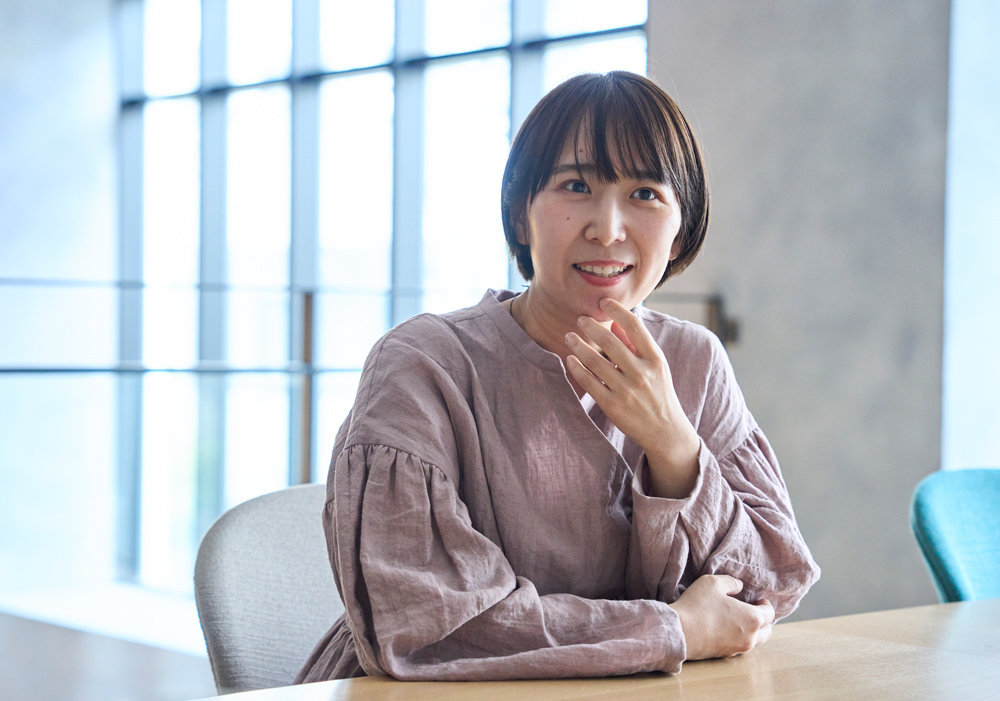![Joined CyberZ/BABEL LABEL from Netflix. Special conversation between Nahomi Sato and Hisato Yamada [Director's Interview Vol.300]](https://cinemore.jp/images/2445d1373f45936f29213a547a38363a43f75d4dce9f4bda9e09c37d79242935.jpg)
Joined CyberZ/BABEL LABEL from Netflix. Special conversation between Nahomi Sato and Hisato Yamada [Director's Interview Vol.300]
Characteristics of global hits and conditions for producers
Q: It's difficult to put it into words, but are there any characteristics that you both think make a global hit? Personally, I feel that uniqueness and universality--something that only the creator can create can become maximal by incorporating elements that will resonate with many people. It is said that the appearance is unique, but the inside is universal.
Sato: I really think it's unique and universal. Is it also a plus about the times? ``What is the need to do this now?'' is something we often talk about in BABEL LABEL's planning meetings.
It can be moving, but if it doesn't make you think, ``Why do I have to watch this now?'' it ends up being a narrow work. That's something I want to keep in mind.
Yamada: I feel the same way. What I often tell the producers is whether they have the responsibility and passion for the project. A good example is Mitsutsugu Kawamura of Star Sands, and I think his passion as a producer to ``depict the yakuza of today's era'' is clearly reflected in ` `The Yakuza and the Family .'' It wouldn't be as good as it is if it was made by someone who doesn't have a passion for the yakuza of today's era.
The screenwriter of `` The Glory '' also writes about ``bullying'' in a thorough manner, incorporating his own daughter's own experiences. That's why it became a work that touched the hearts of many people. My team and I often talk about the fact that even if fiction is mixed in, it is very important that the feelings and Arrival of the producer and writer are reflected in the core of the story.

Q: I think what you just talked about will also lead to human resource development. It's not the ``suicide'' that Fujii often refers to, but how can we find and develop people with passion?
Yamada: BABEL LABEL has launched a writer's room and hired 11 screenwriters. The producers coordinate this work and are divided into many teams to plan and develop the project on a daily basis.
I think it's up to the producer to figure out how to get the scriptwriters involved and build a team, and I'm talking with Mr. Sato almost every day as we move forward. I call it ``mindset,'' and I make an effort to clearly communicate in words ``what we should aim for.''
Sato: Actually, I'm also a business producer, and I've been putting out plans (lol). At first, I thought it would be best to take a step back, but it's difficult to plan and develop something if you don't feel comfortable with it. If you write your own proposal, you can talk about it, and it's easier to have a conversation. I think it's definitely no good if you don't have any ideas.
When I was in charge of purchasing at Netflix, I had a big fight with my team at the time and bought `` Yakuza and the Family '', and the reason I quit Gaga was because I couldn't buy `` Moonlight '', which I really wanted to buy. There's also a part about it that's because of it. I would like to keep that feeling in mind and work together at BABEL LABEL.
Yamada: However, the current situation is that we still don't have enough people. If you are a producer who thinks you are the right person, I would like you to come forward.
The important thing is user attributes < strong works

